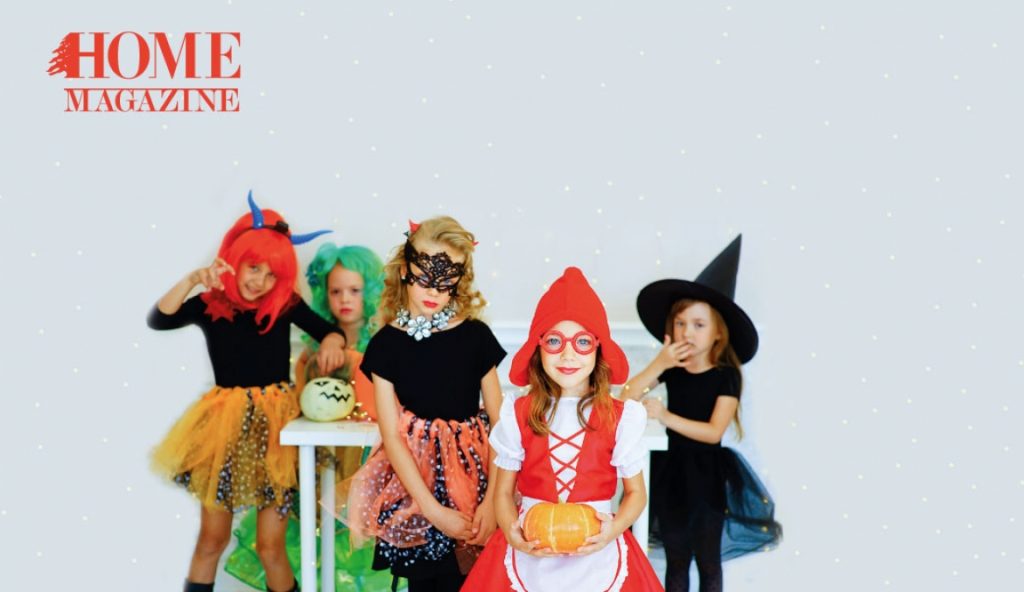December 3, 7 pm: a knock on the door, disguised children, holding a bag and repeating this popular song: “bessiyeh berbara wel kameh bel mghara”. The mother or anyone in the house would offer them some Lebanese desert (zalabia, macaron, kataif achta and raw nuts), cookies, candies, chocolate, and if they are lucky, some money. The rest of the family would join her, trying to guess who’s who, laughing with the children, some shy and others more audacious. The scent of the ‘Kameh’ cooking in the kitchen would reach the house entrance – a mixture of barley, sugar, anise, and orange blossom water. And off go the children, heading to another floor, knocking on another door.
Eid el Berbara is a traditional Christian feast day celebrated in Lebanon, Syria and Palestine for decades now. Although it resembles the North American Halloween, its roots are significantly different as they go back to the 3rd century A.D, to the beginning of Christianity.
Once upon a time, there was this young beautiful girl called Barbara. She was the daughter of the pagan Dioscorus, a rich man who lived in the roman city of Heliopolis (today known as Baalbek). She is described as a beautiful young girl who was locked in a tower, by her father, to preserve her from the outside world and to keep her from the habit of constantly helping the poor. One of her servants who was baptized taught her about Christianity, and Barbara ended up accepting and believing in this new-born religion. She had to admit her Christianity to her father after she had changed the plans of a bathhouse he was building for her personal use: she added a third window to the bathhouse – a symbol of the Trinity. Barbara’s father denounced her to the roman authorities who tortured her.
She was able to flee, running away from the roman soldiers and hiding in barley fields. In each village she reached, the villagers offered her food (cooked barley) and different clothes to help her disguise, for roman soldiers not to recognize her. Unfortunately, the soldiers ended up catching her, and she was sentenced to be beheaded – by her own father! His end was not far: he was soon struck by lightning and consumed by fire. Barbara or Berbara, in her memory, children disguise, and go from house-to-house, reciting Berbara’s popular song in exchange of food. In her memory, ‘kameh’ is cooked in the houses, to be offered to passersby. In her memory too, barley and chickpeas are grown in each house.
“Running away from the roman soldiers, in each village she reached, the villagers offered her food and different clothes to help her disguise.”
Put some cotton in a bowl, on top of which you spread either barley or chickpeas, keep on watering them till you put up the crib – they are part of the nativity scene, on Christmas.
Let us not forget our traditions, they are as beautiful as the ones we bring from across the planet – and they are ours!
Recipe of Kameh:
For 6-8 people
Ingredients:
Wheat peeled 2 cups as 250 g
Water 10 cups 2.5-liter
Hazelnuts, peeled almonds, raisins, coconut, orange blossom water.
Preparation:
1. Wash the wheat well then add it to 2.5 liters of water.
2. Let water boil then diminish the fire, cover the pot and leave it for almost 45 minutes. (You can add some anise to the water to boil to give it some flavor)
3.Turn off the fire and leave the pot for about 8 hours, after this period you can notice that the wheat gets bigger in size
4.Place the wheat in small cups add orange blossom water and decorate them with raisins, peeled almonds or hazelnuts. You can add sugar as well or grated coconut to taste.

































